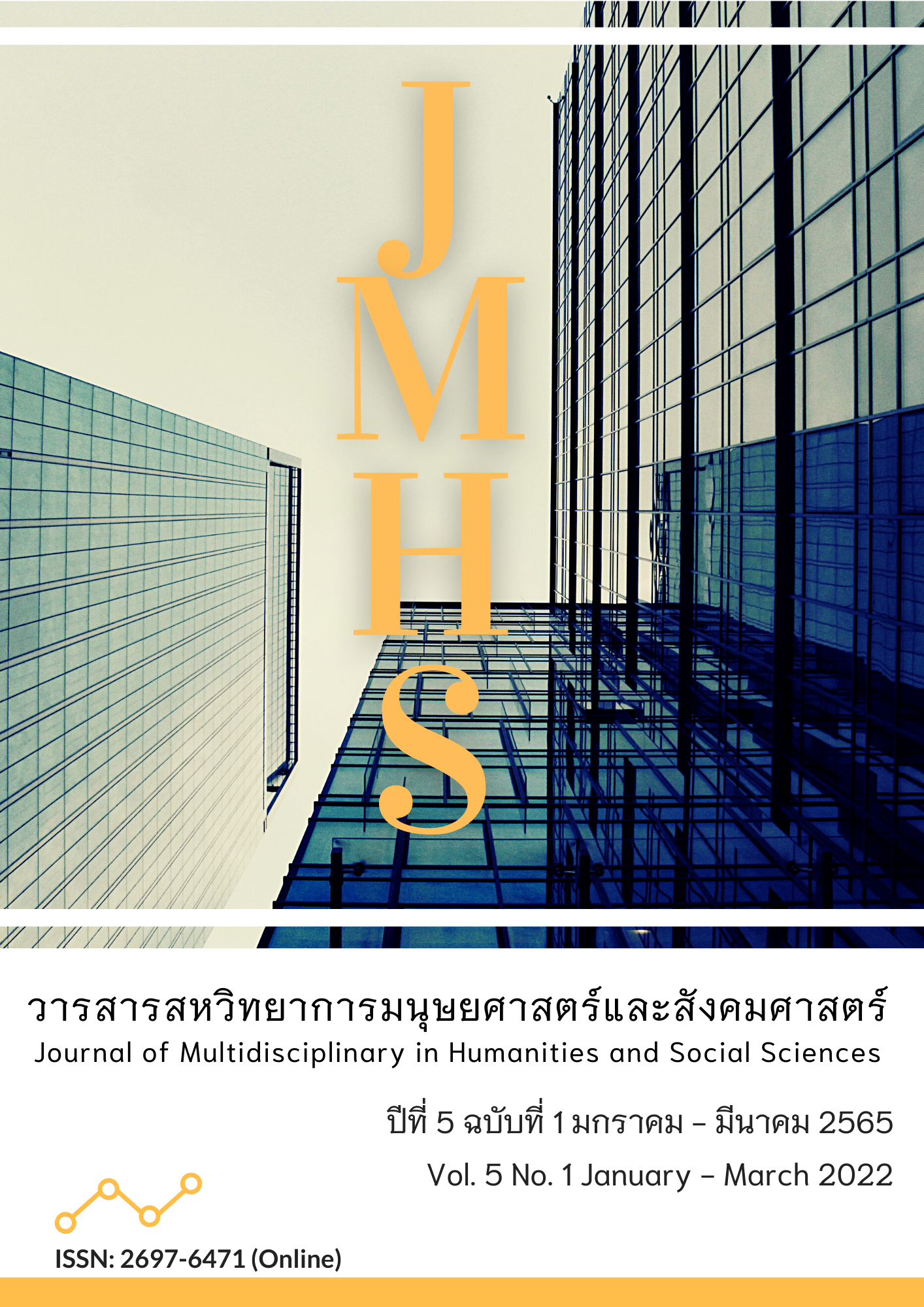A Study the Principles in the Oramphakiya Sutta Related in the Enlightenment
Main Article Content
Abstract
The purposes of this research were: 1) to study the content and principles of the Orampagiya Sutta; and 2) to study Dharma principles in the Orampagiya Sutta related to attainment. It was found that in the making of the only fertilization in the world, there are five principles that appear in the OrampagiyaSutta, which are: 1. Sakkaya Ditthi opinion of being one's self; 2. Vicikitcha doubt; 3. Silabpotparamas Confidence in asceticism; 4. Kama-chanda satisfaction with sensual pleasures); and 5. Victim malice. Practicing Vipassana meditation according to the four foundations of mindfulness is the path of the Noble Eightfold Path for knowing more to determine to the end whether to neglect the five virtues. Firstly, when the benefits are gone, the state of nirvana takes their place. Make the person's mind independent from the benefits. No chaos, happy life.
Practicing with awareness and awareness all the time that appears in the OrampagiyaSutta until the wisdom to see enlightenment as it really is, called enlightenment, stabs throughout the world of the 9 Noble Truths and the Four Noble Truths, which is the highest level of attainment of transcendence and liberation, The attainment of a noble person is divided into four categories, namely Sotapanna, Sakdagami, Anagami, and Arahant. By following the trisikkha principles and practicing samatha and vipassana meditation. According to the principle of cultivating the four foundations of mindfulness, which is according to the Trinity law as it really is, when insight is matured, the courage to follow the Vipassana way can be attained. Practitioners can enlighten and penetrate the Four Noble Truths, abandon fetters and monuments according to the strength of the path, attain the path, fruition, and nirvana, and become a noble person in Buddhism.
Article Details

This work is licensed under a Creative Commons Attribution-NonCommercial-NoDerivatives 4.0 International License.
Views and opinions appearing in the Journal it is the responsibility of the author of the article, and does not constitute the view and responsibility of the editorial team.
References
ชัยชาญ ศรีหานู. (2564). วิเคราะห์คำสอนวิปัสสนาในเตภูมิกถาที่มีผลต่อคตินิยมเชิงพุทธในสังคมไทย. วารสาร มจร บาฬีศึกษาพุทธโฆสปริทรรศน์, 7(1), 12-26.
พระธรรมกิตติวงศ์ (ทองดี สุรเตโช). (2551). พจนานุกรมเพื่อการศึกษาพุทธศาสน์ คำวัด. กรุงเทพฯ: สถาบันบันลือธรรม.
พระธรรมธีรราชมหามุนี (โชดก ญาณสิทธิ). (2548). วิปัสสนากรรมฐาน ภาค 1 เล่ม 1 ว่าด้วยวิปัสสนากรรมฐานทั่วไป. กรุงเทพฯ: สหธรรมมิก.
พระพรหมคุณาภรณ์ (ป.อ. ปยุตฺโต). (2555). พุทธธรรม ฉบับปรับปรุงและขยายความ. (พิมพ์ครั้งที่ 32). กรุงเทพฯ: ผลิธัมม์.
พระพรหมคุณาภรณ์ (ป.อ. ปยุตฺโต). (2561). พจนานุกรมพุทธศาสตร์ ฉบับประมวลธรรม. (พิมพ์ครั้งที่ 31). กรุงเทพฯ: เอส.อาร์.พริ้นติ้ง แมส โปรดักส์.
พระพรหมโมลี (วิลาศ ฌาณวโร). (2545). วิปัสสนาทีปนี, กรุงเทพฯ: ดอกหญ้า.
พระพุทธโฆสเถระ. (2547). คัมภีร์วิสุทธิมรรค. (สมเด็จพระพุฒาจารย์ (อาจ อาสภมหาเถร), แปลและเรียบเรียง). กรุงเทพฯ: ประยูรรวงศ์ พริ้นท์ติ้ง.
พระมหาพงศ์ศิริ ปญฺญาวชิโร. (2564). วิเคราะห์ทานบารมีในคัมภีร์อรรถกถาชาดก. วารสารสหวิทยาการมนุษยศาสตร์และสังคมศาสตร์, 4(1), 63-73.
พระโสภณมหาเถระ (มหาสีสยาดอ). (2549). มหาสติปัฏฐานสูตร ทางสู่พระนิพพาน. (พระคันธสาราภิวงศ์, แปล). กรุงเทพฯ: ไทยรายวันการพิมพ์.
พระโสภณมหาเถระ (มหาสีสยาดอ). (2553). วิปัสสนาชุนี. (จำรูญ ธรรมดา, แปล). กรุงเทพฯ: ประยูรสาส์นไทย การพิมพ์.
พุทธทาสภิกขุ, (2540). ธรรมานุกรมธรรมโฆษณ์ ฉบับประมวลธรรม เล่ม 3. กรุงเทพฯ: ธรรมทานมูลนิธิ.
มหาจุฬาลงกรณราชวิทยาลัย. (2539). พระไตรปิฎกภาษาไทย ฉบับมหาจุฬาลงกรณราชวิทยาลัย. กรุงเทพฯ: โรงพิมพ์มหาจุฬาลงกรณราชวิทยาลัย.
Damnoen, P.S., Chaiworamankul, Y., Thammawatsiri, P.A., & Soontrondhammanitus, P. (2021). Buddhist Ethics and the way of Living in Daily Life: An Analysis of Genital Malfeasances (Kāmesumicchācāra). Turkish Journal of Computer and Mathematics Education, 12(8), 2943-2948.
Kongkawai, P.S. Phrakruarunsutalangkarn, P., Damnoen, P.S., & Khamhanphon, A. (2021). Buddhist Integrated of Management for the Youth Training of Moral Camp in Nakhon Si Thammarat Province. Psychology and Education Journal, 58(1), 3724-3728.
Tan, C.C., & Damnoen, P.S. (2020). Buddhist Noble Eightfold Path Approach in the Study of Consumer and Organizational Behaviors. Journal of MCU Peace Studies, 8(1), 1-20.


